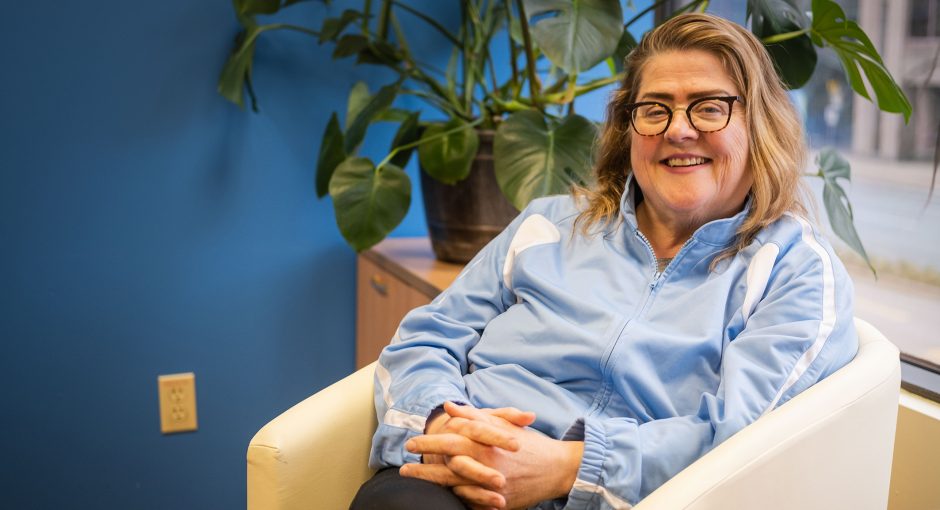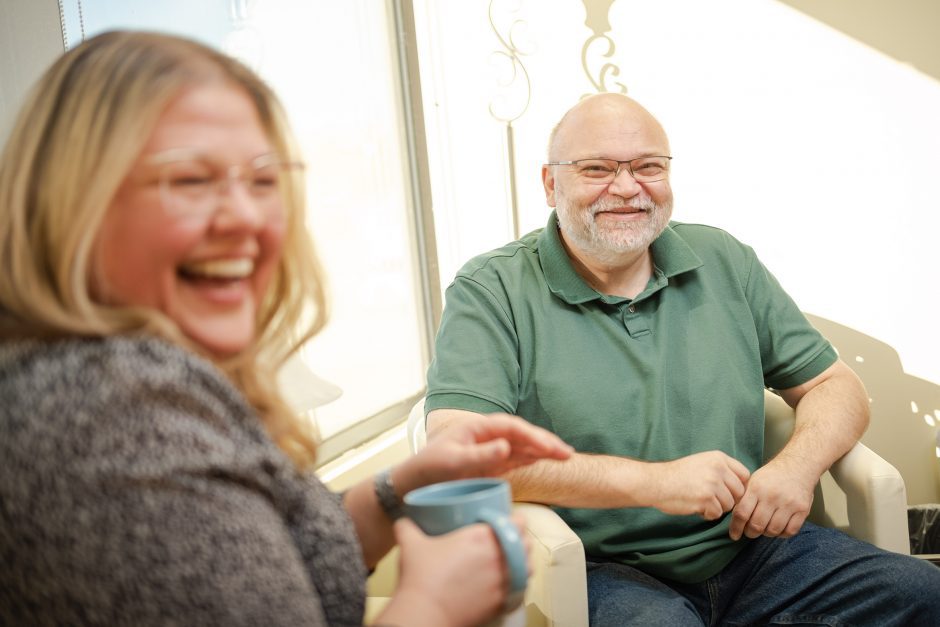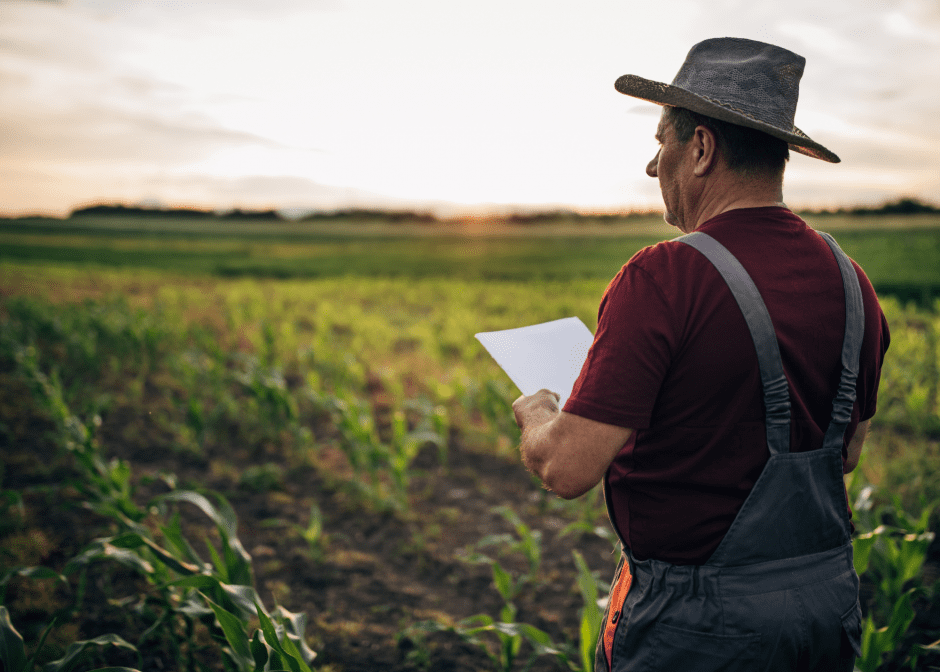We hear from service providers who are devising new models of provision, and from agri co-ops which are offering support for members in a high-stress industry
In recent years, the third Monday in January has been dubbed ‘Blue Monday’. First concocted for a UK travel company’s marketing campaign, it was supposedly the most depressing day of the year, thanks to cold weather, shorter days and post-Christmas financial pressures.
This reflects increased attention around the world to mental health – for instance, with the mention of suicide and mental health in the UN’s Sustainable Development Goal around health and wellbeing.
The pandemic has made things tougher, with the World Health Organisation reporting a 25% increase in anxiety and depression in 2020.
And although the idea of Blue Monday is pseudoscience, it does offer society the chance to discuss mental health.
Suicide prevention charity Samaritans, for example, promotes ‘Brew Monday’, encouraging the public to reach out and connect with family, friends and colleagues over a cuppa – not only on this day, but regularly.
“The whole purpose of Brew Monday was to try and get people together and spend some quality time with each other. Rather than isolating and being busy with their own lives, to share a cup of tea and a catch up with other people,” says Sophia of the Manchester and Salford Samaritans.
This growing awareness of mental health can also be seen in the co-operative world, with UK retail societies launching initiatives and funding charities such as Samaritans.
Related: Report highlights role of co-ops in achieving SDG3 on health and wellbeing
There are also co-ops directly involved in UK mental health provision, such as the Good Mental Health Cooperative, the Lanarkshire Association for Mental Health and Men’s Sheds Cymru providing spaces that promote mental wellbeing through human connection.
Further afield in Saskatchewan, Canada, Crocus Co-operative was established in 1982 by community members who were seeking peer support after receiving psychiatric care. Starting with simple meetings at home, Crocus now runs a space which hosts around 75 people a day. Everyone who accesses the space becomes a lifetime member of the co-op and the board is made up of 51% co-op members.
Executive director Taylor Baier says this level of involvement is often lacking in mental health provision. “In the mental health world, a lot of times people are telling you what you should be doing and what you need. And our model as a co-op suggests that the people with lived experience are the experts, and they’re the ones that should be deciding what they need and how they need it.”

A similar approach is taken by Healthy Minds Coop in Nova Scotia. The phrase “nothing about us, without us” is used by founding member Susan Kilbride Roper. “It’s made a difference to us to be able to live by the co-op model…there was no other model that was so member-driven.”
Roper, who at 16 began experiencing what would later be diagnosed as bipolar disorder, says a driving factor for Healthy Minds was the need for better representation on community needs for people with mental health issues.
Tyler Colbourne, Healthy Minds’ executive director, agrees. “When you empower people to be a part of the solution for something that they’re intimately experiencing, I believe there are better outcomes.”
Related: Can co-ops protect our health from the profit motive?
Healthy Minds is undergoing a membership renewal process, having recently reached out to its more than 400 members to centre their experience in the running of the co-op. The co-op is also looking at a multi-stakeholder model, which would help staff become more embedded in the co-op and gain greater agency at work.
The need for autonomy at work, and a general dissatisfaction with employment options for mental health workers, led clinical psychologist Billy Somerville to set up Alliance Collective, a mental health worker co-op based in New York.
At first, he set up as a solo practitioner, but soon realised he needed a community.

“In the state of New York, there are so many laws around profession of mental health, that impose a lot of hierarchies and create a lot of obstacles to co-operation in this space. So I started a long research project, involving several different lawyers and many thousands of dollars, to eventually arrive with a legal structure that allows us to function as a co-op.”
Among the first to sign up was social worker Juliet Spier, who describes her involvement in Alliance as “a huge blessing during one of the most challenging times of my life and that for most of our clients”.
Alliance was able to grant Spier three months paid time off while she was unable to work due to long Covid last year. “[The experience] has really shown me how important it is to feel like I’m in a work environment where others are accommodating to what’s happening for me,” she said, “and where I matter more as a human being than just a worker.”
In the wider co-op world, wellbeing conversations are becoming more prevalent in sectors where mental health is a challenge – like agriculture, where farmers have a higher rate of suicide than the general population.

Dr Tara Haskins, total farmer health director at the AgriSafe Network, a non-profit that supports the wellbeing of agricultural communities in the US, says there are a multitude of factors that can impact on farmers’ mental health. Pressures include the need to maintain connections in a community, unexpected challenges such as weather events and injury, financial struggles, family dynamics and sleep deprivation.
“People that work in agriculture are often self made, and very stoic,” says Haskins. “That is the mindset that allows them to be successful, but sometimes that same mindset can prevent them from seeking help or care when they need it.”
To mitigate some of these risks, AgriSafe runs a number of initiatives, including the recent launch of a crisis line for producers, training for healthcare professionals and community members, and a Mental Health Innovation Exchange events programme. This activity is part-funded by farmer-owned CHS, one of the US’s leading co-ops with over 10,000 employees worldwide.
“Several years ago, we started hearing from some of our members that they were under an immense amount of stress,” says senior stewardship specialist Tera Stoddard, who adds that when it comes to mental health, “CHS may not be the expert, but we did want to provide some resources for our members to help them in their journey.”
CHS sees its role in this area as a connector and “trusted partner”, says Stoddard. “Even though CHS is a large co-operative, we can put faces and names to the issue.”
The relationship CHS has with its members, she adds, is vital to ensuring they have the support they need to take care of their wellbeing.
A similar sentiment is shared by Richard Kaye, who works for Openfield, a UK grain marketing and arable input co-operative owned by its 4,000 members.
In recent years Openfield has ramped up communications about mental wellbeing, making more use of its platforms internally and externally.
“By doing that, we are promoting that it’s all right to talk about mental health,” says Richard. “Senior leadership talk about it, so when our reps are talking to our members and they sense something’s not quite right, they’ve got the courage to raise it.”
Openfield regularly shares content about wellbeing on social media, including a tweet on Blue Monday promoting the Lincolnshire Rural Support Network and the Farming Community Network helplines. It dedicates at least two pages of its colleague publication to wellbeing topics every issue; December’s edition included a guide to managing new year anxiety.
Both Openfield and CHS say that being co-ops gives them more incentive than a traditional business to consider their members’ wellbeing.
Stoddard says that as a co-operative, CHS has “more skin in the game”, adding “the people that we are targeting these resources to are the people that own us. And so there’s that deeper personal connection and responsibility, to really take care of our farmer owners, maybe more so than if we were just a corporation.”
The concept of connection was a recurring theme throughout all of these conversations, and a key part of the Brew Monday initiative led by Samaritans, says Sophia.
“Human connection allows the opportunity to feel part of something, a community. Brew Monday was asking people to break down those barriers about difficult conversations. So checking in with people and seeing how they’re doing, which often we don’t do in our normal lives.”
Social worker Claudia Maisch echoes this focus on connection and understanding when talking about her experience as a worker member at Alliance Collective. “We all need people, we need connection,” she says. “So much of our world tries to dismember and pathologise that need. I think a lot of people feel very alienated in our world … so the more we can return people to their needs of connection, I think absolutely helps people’s mental health.
“And as a worker in this world, I think the co-operative model has really allowed me to feel less afraid of talking about my needs and feel more supported and more heard and understood by my colleagues.”
Tyler Colbourne from Healthy Minds goes a step further: he believes co-ops are “part of the solution for a better world”.
“We see crumbling systems left, right and centre,” he says. “People are dying in emergency rooms, police are having to respond to more mental health crises. So I think we’re at a convergent point where I think things are going to have to shift, and I hope co-operatives are part of the solution going forward.”
With thanks to thenews.coop
